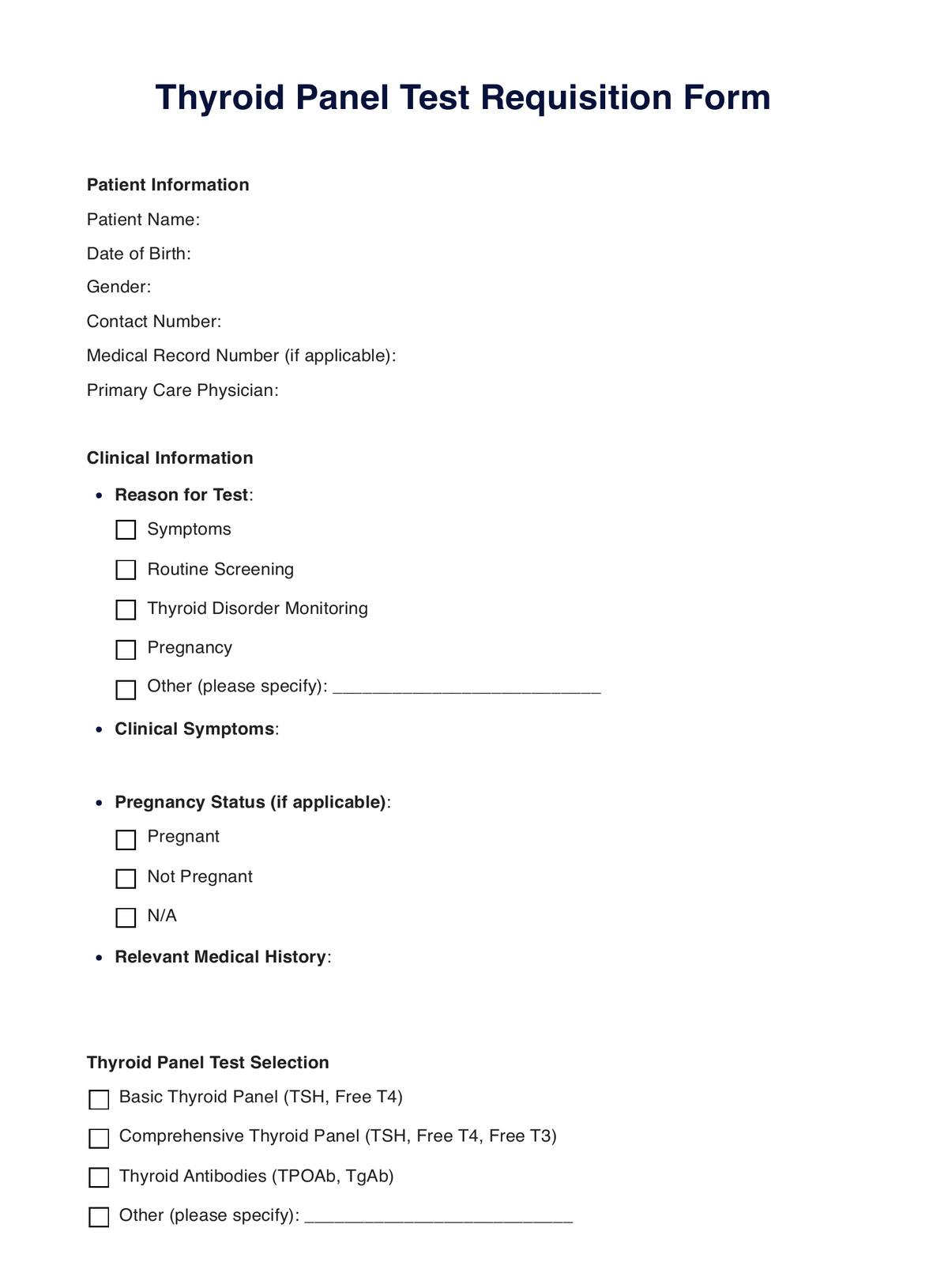Healthcare providers, including primary care doctors, endocrinologists, obstetricians, and specialists in various fields, may request Thyroid Panel Tests based on patient symptoms and medical history.

Thyroid Panel
Optimize your thyroid health with a comprehensive Thyroid Panel Test. Understand your thyroid function today.
Use Template
Thyroid Panel Template
Commonly asked questions
Thyroid Panel Tests are used when patients exhibit symptoms like weight changes, fatigue, and mood swings or to diagnose and monitor thyroid disorders, assess thyroid health during pregnancy, and investigate autoimmune thyroid conditions.
Thyroid Panel Tests involve a blood draw to measure various thyroid markers like TSH, T4, T3, and thyroid antibodies. The results, in conjunction with clinical evaluation, help diagnose thyroid conditions and guide treatment.
EHR and practice management software
Get started for free
*No credit card required
Free
$0/usd
Unlimited clients
Telehealth
1GB of storage
Client portal text
Automated billing and online payments











